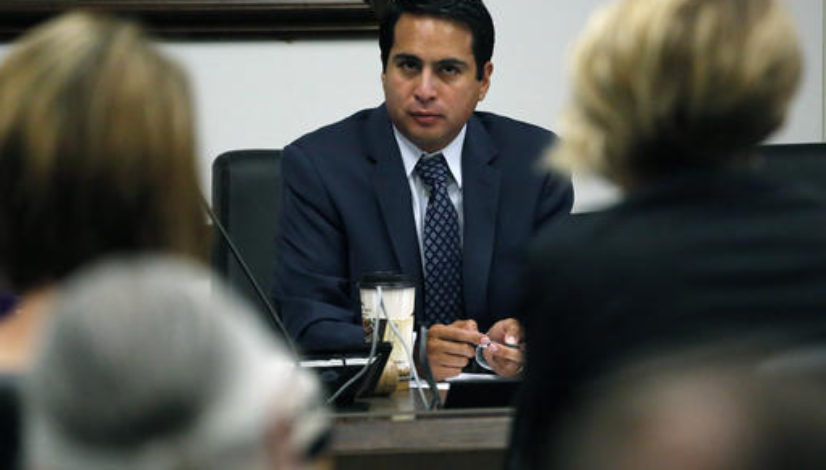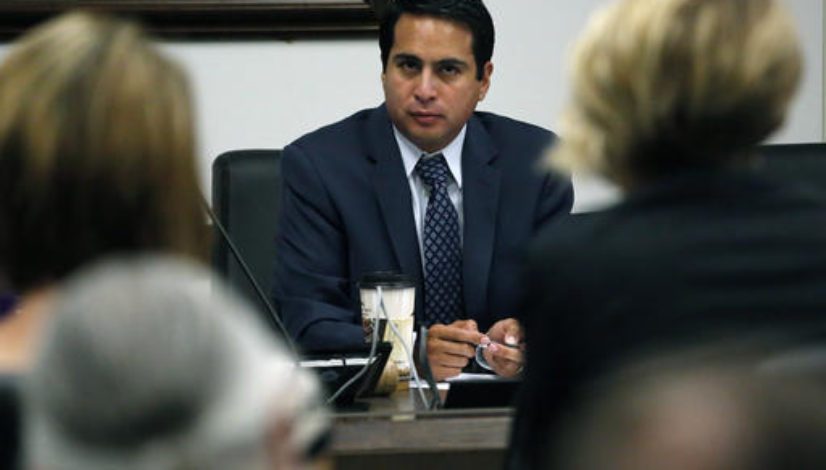Colorado lawmaker calls Sessions’ marijuana policy letters a “political ploy”

Published: Aug 9, 2017, 3:24 pm • Updated: Aug 10, 2017, 8:48 am
By John Frank, The Denver Post
BOSTON — A leading Colorado lawmaker dismissed a recent letter from Attorney General Jeff Sessions that expressed concerns about the state’s marijuana industry, calling it a “political ploy.”
State Rep. Dan Pabon, a Denver Democrat, suggested the Trump administration is skewing statistics to exaggerate the problems in Colorado when it comes to youth use and crime.
His remarks came at a forum on marijuana legalization at the National Conference of State Legislatures summit in Boston, where lawmakers and experts appeared undeterred by the tough talk from Sessions.
Related: NCSL endorses descheduling of cannabis with eye on banking
Sessions’ letter, addressed to Colorado Gov. John Hickenlooper, was one of four written to the governors of states that have laws regulating adult-use cannabis sales. Along with Hickenlooper, the governors of Washington, Oregon and Alaska wrote a letter to Sessions in April, asking him to “engage with us before embarking on any changes to regulatory and enforcement systems.”
Sessions is “trying to do what he feels like he needs to do to demonstrate the administration’s position of cracking down on marijuana,” said Pabon, a chief sponsor of the legislation enacted in Colorado after recreational sales were approved by voters in 2012.
Related stories
- Just say no to D.A.R.E. — starting a better conversation about youth drug prevention
- Could Trump’s declaration of opioids as national emergency be used for Sessions’ war on drugs?
- Jeff Sessions’ letter to Oregon gov cites “pervasive illicit cannabis cultivation”
- Sessions’ marijuana task force report gives him no ammo to go after legal states
- Sessions raises “serious questions” about Colorado’s marijuana management in letter to gov
Maine state Rep. Teresa Pierce, a Colorado native, said she remains focused on implementing legal recreational marijuana approved by voters in her state in 2016.
“To worry about what-ifs while we were trying to get our own system up and going, it felt like that was not good energy to spend,” said Pierce, who recently visited Colorado with a delegation of lawmakers to study the state’s system. “Obviously if things change, we’ll have to adjust course. But at this point, who knows what will happen.”
Jordan Wellington, an attorney at Denver cannabis law firm Vicente Sederberg, told dozens of lawmakers from other states at the forum that the statistics about Colorado’s experience do not match what the Department of Justice claims in the letter. And he urged others states not to be deterred.
“Don’t allow a group of people who have their minds made up before they look at an issue to control the data … to control the narrative,” said Wellington, a former Colorado marijuana regulator who now consults for the industry.
In the panel discussion, Pabon said Colorado is “certainly ready and willing and able” to discuss better policies to prevent marijuana from reaching children and how to address the black market. But he didn’t consider Sessions’ letter as a genuine effort to work with state lawmakers.
Eight states and the District of Columbia have legalized adult-use cannabis.
Earlier in the week, state lawmakers approved a resolution for the second year in a row urging the administration to remove marijuana from the Controlled Substances Act in order to allow the cannabis industry access to banking services.
Topics: banking, Colorado, federal drug scheduling, federal law, Jeff Sessions, Maine, marijuana rescheduling, National Conference of State Legislatures, Vicente Sederberg




